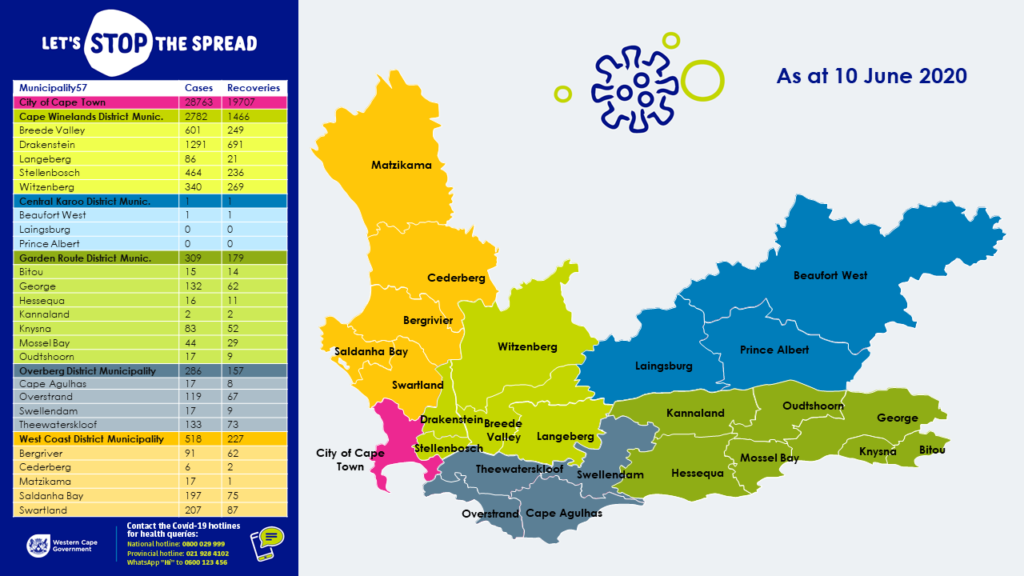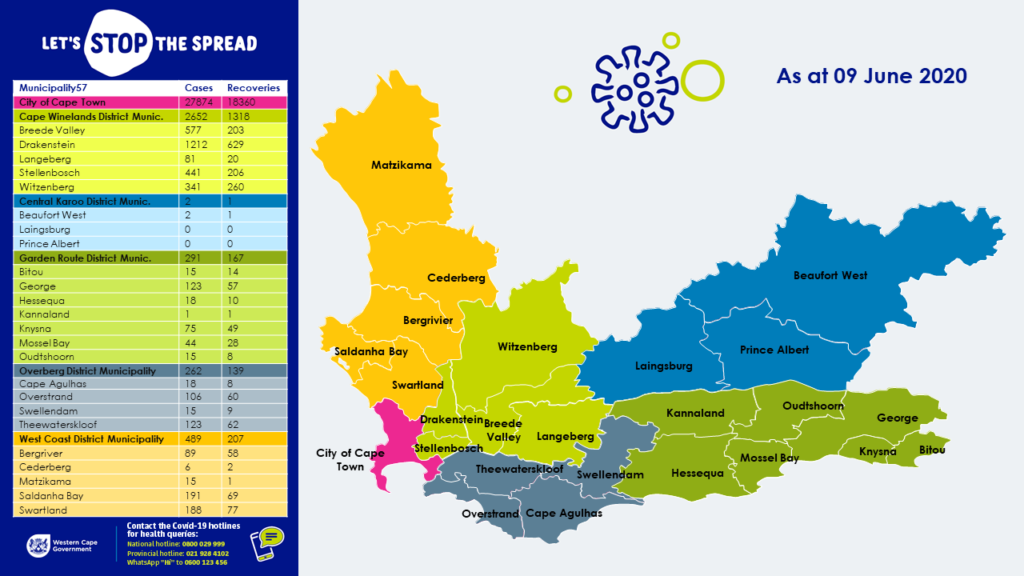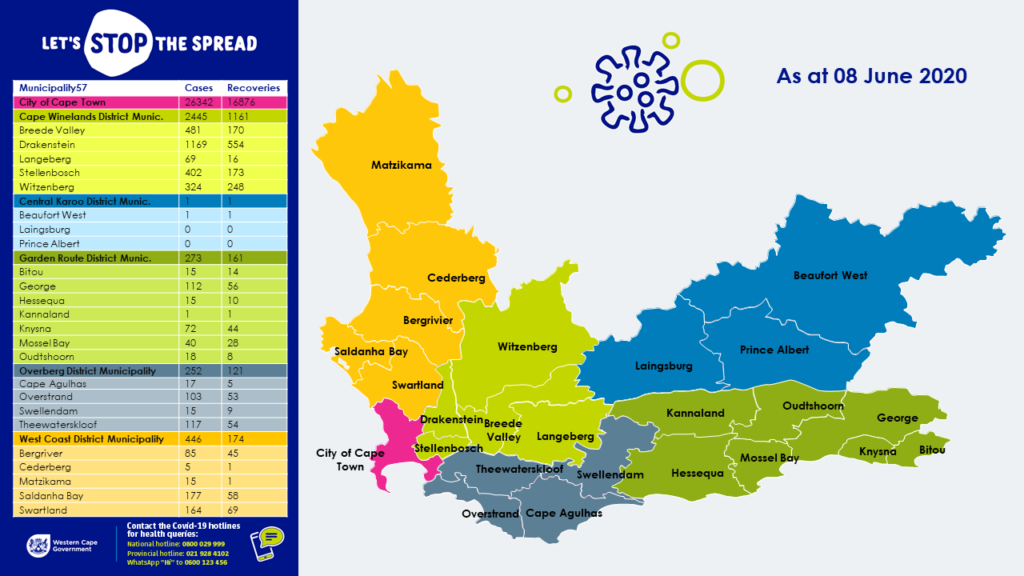11 June 2020 Severe Weather Update
11 June 2020
Severe Weather Update
The Western Cape Disaster Management Centre has been alerted to an influx of visitors to the Cape Winelands area and in particular the Witzenberg area with visitors allegedly attempting to see the snowfall on the mountain ranges in the area.
The Minister of Local Government, Environmental Affairs and Development Planning, Anton Bredell, is requesting members of the public NOT TO travel outside their municipal areas. This includes going to areas like Ceres, Op-die-Berg and Prince Alfred’s Hamlet in particular where snowfall is prevalent.
“Travel restrictions remain in place with regards to ongoing Covid-19 pandemic and the public is cautioned to adhere to the existing regulations,” says Bredell.
The South African Weather Service has alerted the centre that adverse weather conditions continue across large parts of the Western Cape. This includes heavy rain across the southern parts of the Province.
“The SA Weather Services advise that localised urban flooding can continue to be expected in some areas due to continuous ‘on and off’ rainshowers. While the province welcomes the wet weather, we are concerned about the associated risks that increase during bad weather like this, risks which include mudslides and informal settlement fires.”
Provincial as well as Municipal Disaster Management Centres and emergency services are activated and providing assistance where needed.
The public is advised to contact their closest disaster management centre as quickly as possible should an emergency occur. The easiest number to remember to call in an emergency is 112. This number can be dialled toll-free from any cell phone.
“We are also calling on communities to cooperate with local authorities and emergency response personnel in the event of any emergency.”
In case of emergency other relevant numbers to call are:
Cape Winelands Municipality 021 888 5837
Garden Route District: 044 805 5071
Central Karoo: 023 449 8000
West Coast: 022 433 8700
Overberg: 028 425 1690
City of Cape Town: 107 landline or 021 480 7700
Flooding related Tip Sheet
How Can I Prepare for a Flood?
- Identify the risk in your local area.
- Prepare a home emergency plan, and identify risks around your home.
- Remove leaves (from downpipes or gutters) or any other items that can increase the risk of flooding in your area.
- Have an evacuation plan. Everyone in your family has to know where to go to find shelter.
- Prepare an emergency toolkit. This should include a first aid kit, torch and portable radio with batteries, candles and waterproof matches, drinking water, a multi-tool, whistle and emergency contact numbers.
What Should I do during a flooding?
- Monitor current flood warnings. Listen to the radio for emergency warnings, evacuation advice and weather updates.
- Avoid entering floodwater unless it is necessary, and never underestimate the strength of floodwater, even if you are inside a vehicle.
- Follow all instructions from emergency authorities.
- Turn off all electricity and water and take your cellphone with you.
- Assist elderly and disabled neighbours.
What Should I do after the flood?
- Before entering your house, wait until the water has dropped below floor level.
- Check with electricity and water authorities to know whether it is safe for you to use these resources.
- Be aware of contamination if water sources have been flooded; this could be unsafe to drink.
Further tips provided by the SAWS:
- (When moving around outdoors) dress in warm brightly coloured wet weather clothing.
- If caught unawares by strong wind, barricade windows with wooded panels or strips (or furniture if needs be).
- If ordered to evacuate do so immediately and in an orderly fashion. Listen to the radio or TV for warnings and obey the instructions from disaster management officers.
ENDS.
Media enquiries:
James-Brent Styan
Spokesperson for the Minister of Local Government, Environmental Affairs and Development Planning, Anton Bredell
Mobile: 084 583 1670 / Telephone: 021 483 2820 / E-mail: James-Brent.Styan@westerncape.gov.za












